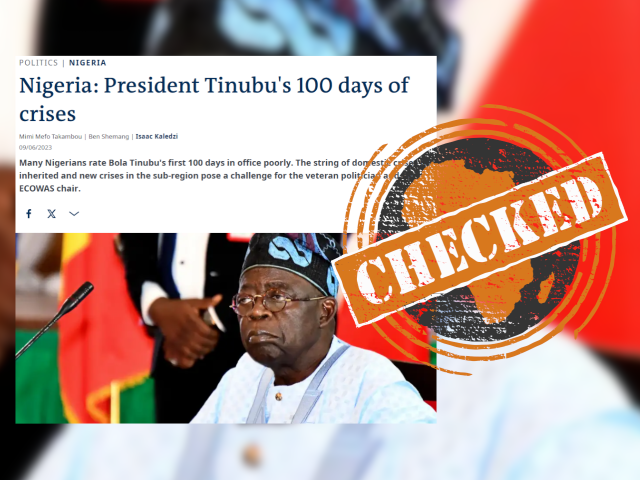IN SHORT: As the country awaits a new cabinet, lists circulating on social media claim to name those who’ve made the grade. But it’s not to be trusted.
A list of 27 names, posted in a 1 June 2023 Facebook post, claims to be of “new appointees and some new ministries” made by Nigeria’s new government.
Bola Tinubu, who was sworn in as Nigeria’s president on 29 May, still has to appoint ministers to form his cabinet.
The list has been replicated on other pages on Facebook with some claiming that Tinubu has abolished certain ministerial offices.
The list can also be found here, here, here and here.
The posts lists popular Nigerians and claim that Tunde Bakare, a pastor who was Muhammadu Buhari’s running mate in the 2011 presidential election, has been appointed as a special adviser to Tinubu.
Buhari served two four-year terms as president, beginning in 2015.
Other claims include the appointment of Pat Utomi, an economist and member of the opposition Labour Party, as the minister of development and national planning. But is this list real?

‘Nothing can be further from the truth’
The news of the ministerial appointments was not published in local Nigerian media. Given the importance of the positions, one would expect the appointments to be widely reported.
A law passed by Buhari requires ministers to be appointed within 60 days of the start of a new government.
The names of the nominees will then be sent to the national assembly for scrutiny by lawmakers. The vetting session is likely to be televised live, similar to previous sessions.
Utomi has also denied the claim, asking Nigerians to ignore the list.
“Nothing can be further from the truth,” local media quoted his spokesperson as saying.
Republish our content for free
For publishers: what to do if your post is rated false
A fact-checker has rated your Facebook or Instagram post as “false”, “altered”, “partly false” or “missing context”. This could have serious consequences. What do you do?
Click on our guide for the steps you should follow.
Publishers guideAfrica Check teams up with Facebook
Africa Check is a partner in Meta's third-party fact-checking programme to help stop the spread of false information on social media.
The content we rate as “false” will be downgraded on Facebook and Instagram. This means fewer people will see it.
You can also help identify false information on Facebook. This guide explains how.




Add new comment